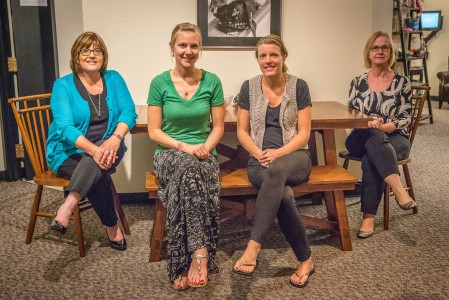The Student Health and Counseling Services (SHACS) recently announced a number of changes taking place within the center and with services being offered there. These changes relate to the way that SHACS handles health in all aspects, with significant attention paid to the way mental health will be treated in the future.
Director of SHACS Operations Deb Shill stated that following the departure of two of the College’s doctors SHACS has had to reevaluate the way it operates.
“[We had to] look at the services that we provide, look at what the student need is and try to figure out how best we can meet the students’ needs,” Shill said.
By expanding their staff and their connections, SHACS is looking to make a transition to a smoother healthcare process. Shill said she believes that SHACS’ partnership with Grinnell Regional Medical Center (GRMC) will provide increased access to the hospital’s more extensive services.
Additionally, the mental health center at GRMC will now provide professional counselors who will join the current SHACS team with the intent of serving both students and the community at large. As of this writing, the GRMC counselors are still in the process of training before working at the College.
“There’s always a demand for more mental health services,” Shill said. “With a lack of licensed professionals, being in collaborative communication is really imperative to try and figure out how we can meet everybody’s needs.”

Photo by Chris Lee.
Unfortunately, even with licensed professionals on site, Shill said that SHACS simply does not have enough space to completely meet needs on campus alone.
“We are at our maximum capacity in our space that we have here,” Shill said. “I am hopeful that in future talks, it will be discussions about where, potentially, we could be located, and how we could have a bigger space so that we can meet the students’ needs … [and be] able to have that licensure, the professionals, that can write those prescriptions for students, but that would be down the road.”
Shill went on to note that some of the changes might not be happening until further into the fall semester this year, due to the complexity of the situation. However, she assured students that the College is setting its best foot forward.
“The College is being very transparent,” Shill observes. “They’re being very honest about the needs and the staffing situation that we’re in.”
As SHACS settles into a new structure and as the entirety of its medical professionals complete their training, students can expect to receive similar treatment and services as were offered in previous years.
“Right now, it’s a little bit limited because of the training aspect,” Shill said. “But we’re working on that. We’re providing urgent care and triage appointments every day. So far, we’ve been able to meet the needs for students that come in here.”

















































